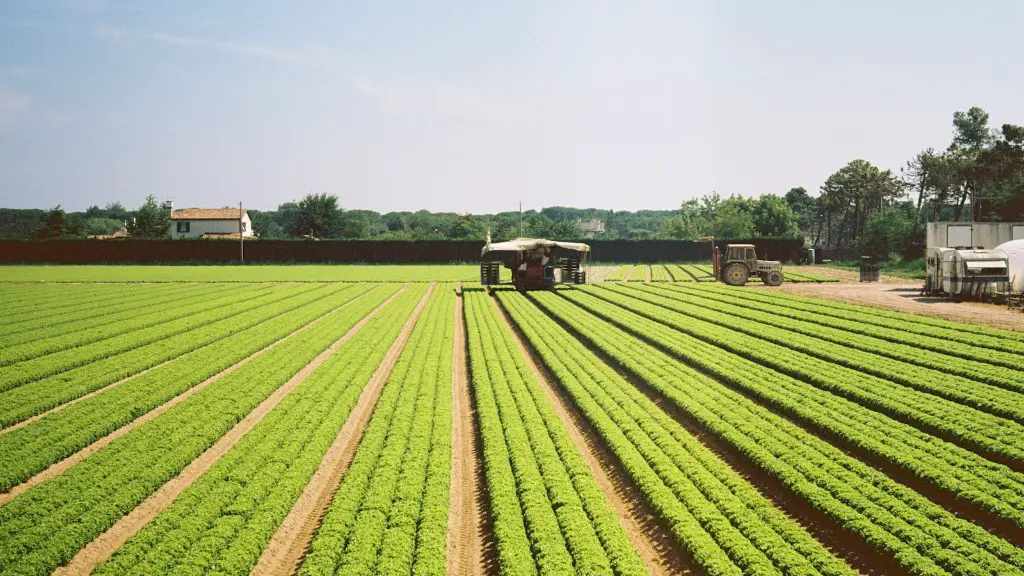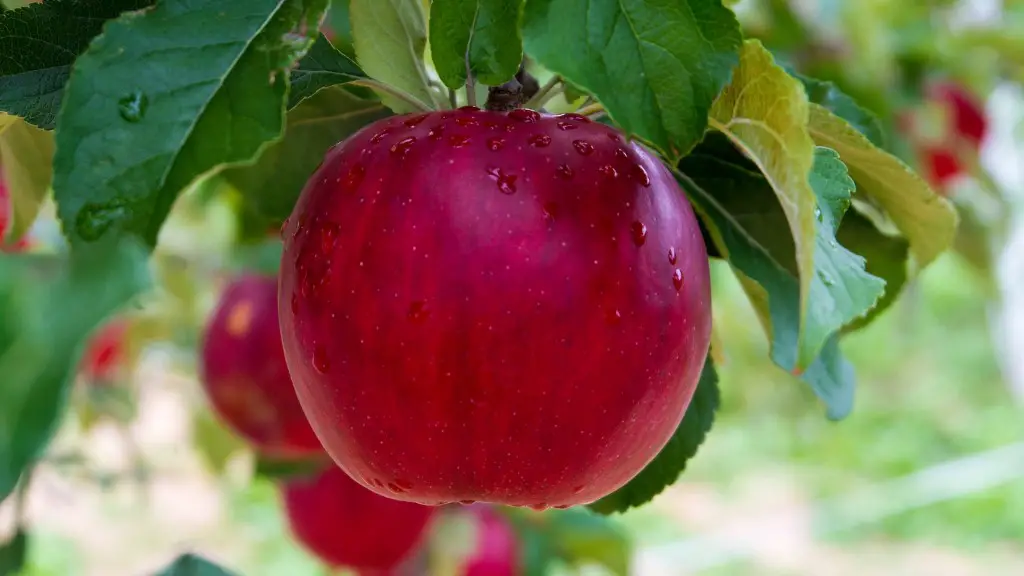Research has become an indispensable part of modern agriculture. It is used to solve various problems faced by the agricultural sector, from pest control to land management. Research helps farmers stay ahead of the curve, allowing them to make better decisions, use up-to-date information and make the most out of their crops and land. It’s also essential in understanding the changing climate and developing better strategies for facing challenges brought about by weather conditions.
Research in agriculture helps in the development of new methods and techniques of farming, some of which are more efficient, cost-effective, and ecologically beneficial. These new techniques, if implemented in the right way, can help increase the productivity of a farm and lower the risk to crops. Newer methods are also required in order to tackle the ever-changing pest infestations, soil erosion and other threats.
Moreover, research helps identify suitable crops for particular soils and climates, and lets farmers know which fertilizers and insecticides should be used in order to yield better crops. Research is also necessary for the development of innovative and eco-friendly farming practices, such as more efficient irrigation systems, crop rotation, and sustainable management of natural resources.
Studies are imperative for efficient farm management, as they can provide farmers and agronomists with important indicators about the status of their crops and land. For example, research can help better identify the factors that can influence the growth of crops, such as temperature, soil composition, and amount of sunlight. With this data, farmers can make calculated decisions to maximize their yield and minimize crop damage, such as selecting the best time to sow, irrigate, and harvest.
Furthermore, research in agriculture can help to preserve and improve the quality of life of those who depend on it. Studies have shown that research-based improvements in agricultural methods can lead to higher incomes for farmers and other members of the agricultural workforce. Research has also identified innovative approaches for improving nutrition, which is especially beneficial for enhancing the quality of life in rural communities.
As you can see, research is extremely important in agriculture. It’s essential for the development of efficient and profitable farming methods, as well as for preserving and improving the quality of life of those who depend on farming as their livelihood.
Current trends in agricultural research
At present, agricultural research has advanced to encompass new technologies, such as the use of satellite imagery, advanced agricultural software, and precision farming. Data collected through research is used to better understand the factors that influence the growth and health of crops. This data is also analyzed to identify areas for improvement, such as the optimal arrangement of crops, or the appropriate use of fertilizers.
Furthermore, research is also used to investigate and develop beneficial training and educational opportunities for farmers. Research findings aid agricultural organizations in developing more effective methods for promoting the modern practices of farming. The use of information gleaned from research is also critical for the success of agricultural programs implemented by the government.
In addition to these areas of research, more resources are also being devoted to studying the various genetic components involved in crop production and environmental sustainability. This involves researching and developing new genetic material, as well as gene manipulation tactics. The potential of this kind of research is massive, as it could enable farmers to produce entirely new hybrid varieties of plants, specifically designed to resist certain pests or harsh climatic conditions.
Movements like organic agriculture are further expanding the scope of agricultural research, as a lot of studies are conducted to explore new agro-ecological methods and to understand their environmental, economic, and health benefits.
The impact of agricultural research
The impact of agricultural research is felt in every aspect of agricultural life, from the use of ingenious techniques to boost production to the implementation of improved safety protocols. The use of research-based findings can lead to more efficient cultivation methods and improved product yield.
At the same time, the use of research-based information also helps to minimize risks to farmers and their crops. With access to the right information and resources, farmers can better understand and combat environmental threats and make sound decisions when it comes to preparing fields and crops.
Agricultural research also helps advance food security initiatives, as it can provide us with the data needed to identify nutritious crops and healthy livestock breeds that can help feed a growing global population. Research also enables us to expand our knowledge about the nature of agricultural products and the ways in which we can best use them.
The advancements made in research have also modernized agricultural methods and processes, with studies leading to the introduction of sophisticated machines and equipment that are efficient, reliable, and controlled by smart technologies. Automation is being increasingly used to monitor and manage crop production, from the moment of sowing to the time of harvest. Research-based solutions also enable farmers to reduce labor costs and save resources.
The potential of agricultural research
Agricultural research is essential for maintaining our access to food and other resources. As such, research plays a significant role in global efforts to achieve food security, a sustainable environment, and a healthier population.
As the world’s population and demand for food continue to increase, it is essential that we not only focus our attention on optimizing existing methods, but also direct resources towards discovering new and better ones. Moreover, research is essential for mapping out the ways in which we can help protect our planet for future generations.
Although the application of research-based solutions is still in its early stages in many parts of the world, it can already have a massive positive impact. For example, studies have already identified the use of certain plants as a form of pest control, which could have a huge impact on reducing the use of insecticides, herbicides, and fungicides.
Research has also been instrumental in helping create healthier crops and livestock, as studies have shown that it is possible to develop and promote varieties that are resistant to certain diseases and pests. This could help farmers reduce their crop losses and, in turn, improve their incomes.
Conclusion
Research is an indispensable tool in modern agriculture, as it is the key in helping us advance in the areas like pest control, land management, developing new crops, and improving farm management. As our technology rapidly advances, research is also essential in monitoring, customizing, and improving agricultural methods to better serve the world’s population. Additionally, agricultural research might be the catalyst in enabling us to create a sustainable, healthy, and equitable global food system.




